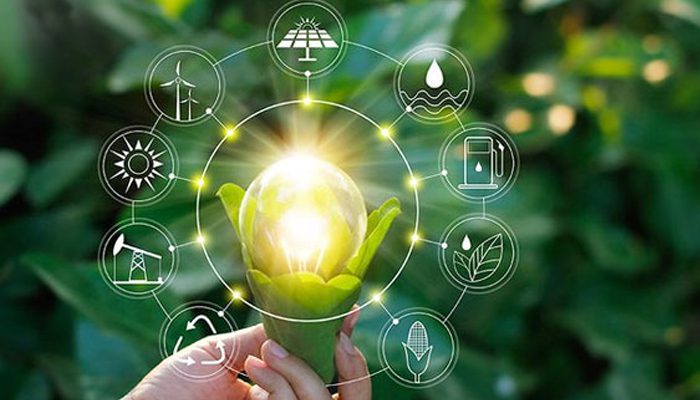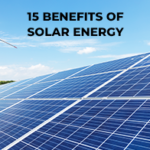Why Is Energy Conservation Important
Do your energy bills drain your wallet? You aren’t alone – many people struggle with rising energy prices, yet what if there was an easy and inexpensive way to reduce consumption while saving money at once? Energy conservation may provide that answer; in this article, “US Energy Discounts” explore its importance, demonstrate its positive effects both personally and ecologically, and give an exhaustive guide for conserving natural gas and electricity usage.
Why is it Important to Conserve Energy?
The following are the main reasons to conserve energy:
Energy Conservation Reduces Consumption
At its heart, energy conservation’s primary benefit lies in helping us lower energy usage. By conserving energy, we save on utility bills while decreasing carbon emissions. Furthermore, keeping power reduces demand, leading to less strain on infrastructures like grids or the need for additional power plants – a bonus.
Energy Conservation Can Save Money
One of the critical advantages of energy conservation is helping you save money on your utility bills. By decreasing energy use and using less electricity or natural gas, power conservation will mean paying less for it all in return.
Preserve the Environment
Electricity conservation can play an integral role in protecting our natural environment. By conserving electricity, we reduce fossil fuel usage to generate electricity or heat our homes, which seriously impacts climate change mitigation efforts and carbon emission rates. By saving power, we also help decrease our carbon footprint while mitigating climate change impacts.
Enhance Indoor Air Quality
Lowering our energy use can improve indoor air quality. Decreasing pollution emissions into the environment and using less power ourselves can especially be helpful to those suffering from respiratory conditions as pollution exacerbates them.
Increase the Lifespan of Appliances
Conserving electricity can extend the appliances’ lifecycle by decreasing their usage frequency and, consequently, less frequent repairs or replacements. Doing this will prolong their lives while reducing repair bills or replacement costs.
Ways to Conserve Energy
Here are some energy conservation tips for 2023:
Use Energy Efficient Appliances
A straightforward way to conserve natural gas and electricity is by selecting energy-efficient appliances. Such models use less power when running, which equates to significant savings on your monthly power costs. When shopping, look for those marked “Energy Star,” as these meet strict efficiency criteria.
Switch to LED Bulbs
Another effective way of saving electricity is switching over to LED bulbs. They consume much less power and last much longer than incandescent lamps – even though initial costs might seem more substantial. LED lights ultimately save more long-term costs than their incandescent equivalents.
Unplug Electronics When They're Not Needed
Electronic devices still consume energy even when not in use – known as “phantom” or “vampire” – up to 10% of your home use can come from it! To conserve electricity, use power strips with remote switch-off capability to quickly disconnect them when not needed or unplug all electronics before leaving them at rest.
Seal Your Home
Air leakage is one of the primary sources of power loss in any home and must be sealed to reduce power loss. Without sealants such as weatherstripping, caulk, and insulation to secure airflow between rooms in your house and their atmosphere outside, heat loss from winter months becomes even more significant during summer days and vice versa!
To save electricity costs in both winter and summer. To conserve power, use weatherstripping, caulking, and insulation as tools in sealing up leaky spaces between walls to seal air gaps between walls for airflow between rooms that keeps heat loss occurs. Allowing heat loss through leakages between spaces that connect different rooms inside houses for power savings when air escapes out into them from outside air leakages to conserve electricity loss from both seasons!
To save electricity costs, use weatherstripping/caulking/insulation techniques to seal/enclose off-air loss by making an airtight fill your home by making use of weatherstripping/caulking/insulation techniques to pack it properly using weatherstripping/caulking and insulation material seal your home correctly to save precious heat or cool air entering into or exiting from outside and inside.
What Are Some Types of Energy Conservation Devices?
Energy conservation is focused on reducing power consumption, but it has energy efficiency because nearly everything requires electricity in one way or some form. Power-saving gadgets come in all sizes, shapes, and price sizes.
Some of the most prominent power-saving devices include smart sockets, eco chargers, Energy Star appliances such as dryers and washers, refrigerators, dishwashers, AC units, and “smart” programmable thermostats. There are many others. However, these are a few of the most sought-after models of devices that can reduce power consumption much more simply.
How Does Energy Conservation Help the Environment?
If you reduce your electrical use, it reduces your environmental impact. The longer we delay making significant changes, the more of a risk of climate change and global warming change to our everyday lives.
If we consume fossil fuels, they produce a considerable quantity of carbon dioxide emissions. These carbon dioxide gases build up faster than the atmosphere can absorb, preventing the Earth from steadily maintaining its temperature.
The rising temperatures of the planet are referred to as “global warming. We define the effects of warming as a result of climate change. We see these side impacts through events like changes in sea levels, droughts, cold snaps or storms, melting glaciers, and wildfires. However, we can reduce carbon dioxide emissions by reducing power consumption.
Simple acts of conserving energy can reduce global warming
- Help coastal cities stop disappearing under the sea. The city of San Diego is a threat of disappearing underwater
- Enhance water quality, and help protect the fragile ecosystems of reefs and other corals.
- Improve air quality and decrease airborne allergens that can lower the risk of developing cardiovascular and respiratory problems. It identifies the most common respiratory and cardiovascular issues.
- A lower impact on mental health as well as fatalities, injuries, and other incidents due to severe weather.
Conclusion
Energy conservation is important for saving money, decreasing our carbon footprint, improving electrical security, and supporting sustainability by making simple adjustments in daily activities and contributing to greater efficiency overall. Take the initiative now to preserve electricity for a brighter tomorrow – start conserving now.





